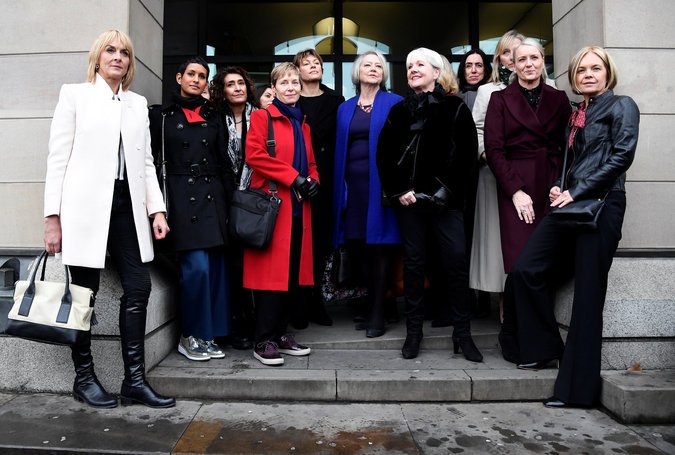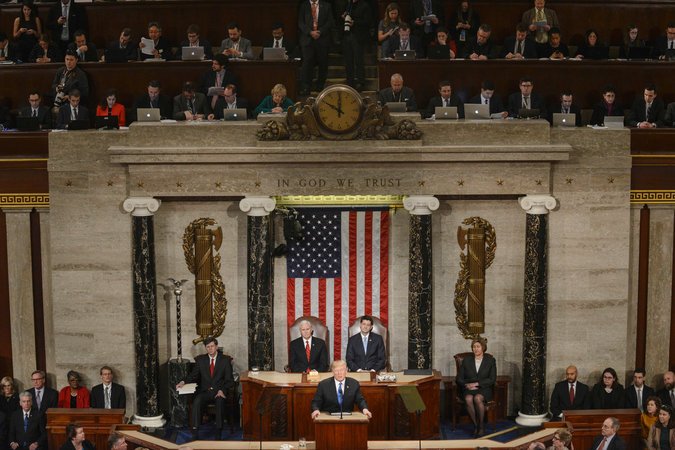Tony Hall, the BBC’s director general, noted the broadcaster’s “special role” in the broader debate. “That is why we need to be and want to be an exemplar on gender pay, and equal pay,” he said in a statement on Tuesday.
But lawmakers questioned the BBC’s commitment, given that Ms. Gracie had earned tens of thousand of pounds less than men doing similar jobs.
“You’re telling us nothing about what you’re going to do with this historic — this huge, historic — problem you’ve got with these huge inequities in pay,” said Julie Elliott, a Labour lawmaker.
Fran Unsworth, the BBC’s director of news and current affairs, acknowledged that the organization put a higher value on some jobs, like North America editor, than on others such as China editor. Ms. Unsworth maintained that Ms. Gracie’s pay was on par with male editors when she took the job, and that managers had overlooked adjustments that could have been made since.
“If you take the North America job, this is on-air three times a week at the moment,” Ms. Unsworth said. The China job, she said, is “not the relentless treadmill that something like the North America job is.”

Ms. Gracie said the grievance process, which attributed part of the pay discrepancy to her need for professional “development,” had added “insult to injury.”
“That’s the first time I’ve ever been in development at 55,” she said dryly.
Ms. Gracie was “the perfect example of a woman who was asking and not getting,” said Amanda Goodall, a senior lecturer at Cass Business School in London and an author of a paper that found that women ask for pay raises as often as men do, but do not receive them as frequently.
Newsletter Sign Up
Continue reading the main story
Thank you for subscribing.
An error has occurred. Please try again later.
You are already subscribed to this email.
Discontent about pay has often simmered at the BBC, which is funded by a license fee paid by British households. The row deepened last summer when the broadcaster disclosed the salaries of on-air employees earning more than £150,000.
Advertisement
Continue reading the main story
The data revealed startling gaps in the pay of its most senior male and female journalists, prompting demands for change. Though two male international editors appeared on the list, neither Ms. Gracie nor Katya Adler, the broadcaster’s Europe editor, reached that level.
A follow-up report commissioned by the BBC identified no “systemic gender discrimination among rank-and-file employees,” a finding challenged by female journalists. In November, Samira Ahmed, a BBC presenter, described in an journalists’ union newsletter how it felt to be paid less than male colleagues.
“I can only describe the feeling of being kept on much lower pay than male colleagues doing the same jobs for years as feeling as though bosses had naked pictures of you in their office and laughed every time they saw you,” Ms. Ahmed wrote. “It is the humiliation and shame of feeling that they regarded you as second class, because that is what the pay gap means.”
The National Union of Journalists lodged an official grievance in December on behalf of 121 members; more joined the grievance later. When the BBC asked all employees with complaints to come forward, it resulted in 298 cases in all.
Mr. Hall said the BBC had resolved 117 of those cases, most of them involving pay for women.
Last week, the BBC said it was reducing the salaries of several male journalists. Then on Tuesday, it published a further review, of the salaries of 824 on-air staff, which also found no evidence of gender bias in pay decisions.
Still, the report noted that there were more men than women in the upper half of pay distribution, and that pay for the highest-profile employees, most of them men, needed to be adjusted.
The BBC said that it would address these issues and institute “substantial pay cuts” for some men, while increasing pay for some male and female presenters.
A group of 170 women at the BBC said in a submission to Parliament that they had “no confidence” in the review’s conclusions, saying they had not been consulted.
Some of these women detailed their experiences in the document, which was submitted to the parliamentary group, the Digital, Culture, Media and Sport Committee. The summary said that women had “experienced veiled threats made against them when they raised the subject of equal pay.”
Continue reading the main story
Article source: https://www.nytimes.com/2018/01/31/world/europe/bbc-gender-pay-carrie-gracie.html?partner=rss&emc=rss


